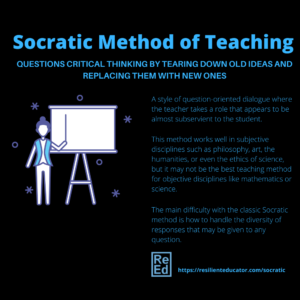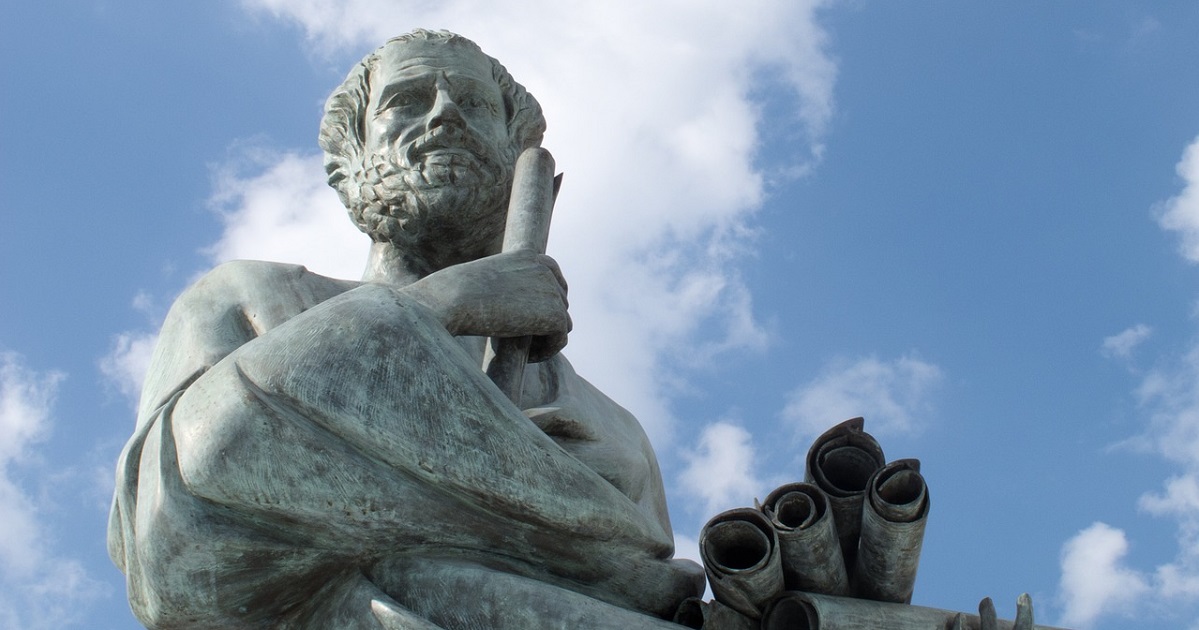
Students and teachers have been debating the best methods of instruction since the rise of the city state but few scholars have made an impact on educational methods like Socrates. The Socratic method of teaching is difficult to define in simple terms, but it involves a style of question orientated dialogue where the teacher takes a role that appears to be almost subservient to the student. The teacher in a Socratic dialogue essentially denies his or her own knowledge of a subject in order to lead the student to the correct idea or answer. The question remains, is the Socratic method right only for ancient Greece or is it relevant for contemporary academia as well?

Does discipline matter?
The most classic form of the Socratic Method uses creative questions to take apart and ignore current ideas. This allows the student to think about important concepts in a new light. This method is ideal for questions of a philosophical nature like “What is Beauty?” or “What is Life?” However, this method may not be right for concepts that have a clear definition like “What is a Cell?”
Based on these ideas, the Socratic method of teaching may seem to work better in some disciplines than in others. This method works well in subjective disciplines like philosophy, art, the humanities, or even the ethics of science, but it may not be the best teaching method for objective disciplines like mathematics or science.
The Socratic method of teaching in objective disciplines
When Socrates was teaching, subjects were not disciplined in the same way that they are now. Mathematicians explored cooking just as philosophers explored literature. The ancient boundaries between disciplines were not as clearly defined as they tend to be in modern day academia. For this reason, and many others, Socrates was able to successfully use his method in objective disciplines like mathematics just as he was able to successfully use it in subjective disciplines like philosophy.
Recently, a student of the Socratic method of teaching brought this method to an elementary classroom. He arrived Friday afternoon when the students would be the most impatient, and using the Socratic method, he successfully taught them about place values. This concept was far beyond what these students were learning in their regular math classes, but by leading them in the right direction through questioning, he was able to help them grasp the concept of place values.
Plato’s Socratic Teaching Method
The heart of the Socratic teaching method is asking questions. Commonly described as a dialogue between student and teacher, the Socratic Method starts with provocative questions from the teacher. Students engage not just by answering those questions but by asking questions of their own.
The atmosphere of a Socratic classroom may be one that’s discomforting to the students. It should always be productive, however, and it shouldn’t involve any intimidation on the teacher’s part. The teacher isn’t asking questions to see what the student already knows and they should never become a devil’s advocate or a debate opponent. Instead, the teacher asks questions to dive deeper into a complex subject — sometimes without even a predetermined goal.
Through the back-and-forth questioning, each student is challenged to explore their own beliefs and values. Because of this, the Socratic method is often of most value when used to explore moral or ethical issues. It’s not of any real value for conveying facts or knowledge. Students, who are often on edge waiting to be called on, must confront their own uncertainties when composing answers to the teacher’s questions.
While the act of posing questions lies at the heart of the Socratic method, Plato viewed the question-answer format of the method as a sort of game — a view that is not unlike contemporary concepts of play-based learning. For Plato, play functions as a tool to help people discover the truth, learning more about both themselves and the universe in the process. The Socratic method thus becomes a cosmic game of hide-and-seek with participants searching together for hidden truths.
Potential difficulties with the Socratic method
The Socratic method of teaching questions critical thinking by tearing down old ideas and replacing them with new ones. For instance, instead of discussing how to apply justice in diverse social settings, a group of students may discuss the basic concept of justice itself. By talking about this concept through questions given to them by a teacher engaged with the Socratic method, students get the chance to discard their previous notions of justice and replace them with something that is truly philosophically sound. The main difficulty with the classic Socratic method is how to handle the diversity of responses that may be given to any question. Unfortunately, the way Socrates dealt with this particular issue has been lost to history.
The modern Socratic method
The modern Socratic method of teaching does not rely solely on students’ answers to a question. Instead, it relies on a very particular set of questions that have been designed in a way that lead the students to an idea. By using questions, the teacher has the opportunity to get their students involved and excited. By starting with questions to which the students know and understand the answer, the teacher helps the students to learn new concepts. This creates an atmosphere where students are truly learning as opposed to an atmosphere where the students are parroting information and forgetting it. For more practical tips about applying the modern Socratic method of teaching, read more about how to use Socratic questioning.
Socratic Method examples and success stories
The Socratic method is most notably used in law school, where professors regularly call on students to argue either side of a case. Many people may be familiar with this use from the movie The Paper Chase, in which the intimidating Dr. Kingsfield hounded his students to think more deeply.
Most modern law professors, however, don’t use the Socratic method quite as forcefully. Instead, they probe with questions to help students understand all the implications of ethical dilemmas raised by various cases. Students come away from these classes with a deep understanding of the subject matter, whether in contracts, evidence, or other types of classes.
For example, a law school professor might start a class by asking one student to summarize a particular case. The professor might then ask a different student to argue one side of the case and call on yet another student to argue the opposing stance. As the class continues, the professor continues to ask questions about different aspects of the case and the arguments, exploring the reasoning behind each student’s point of view.
If the Socratic method were carried into a writing class, the specifics discussed would be different but the techniques would be similar. A teacher might ask a student to summarize or describe a piece of creative work. The teacher would then ask probing questions about the topic, theme, and style of the work, eliciting opinions from other students.
Questions in the Socratic method are a means of eliciting alternate viewpoints, challenging questions and assumptions, requesting clarification and exploring the consequences of a choice. Examples of questions a teacher might ask when using the Socratic method include:
- What assumptions are you making?
- Are you asking the right question? Is there a better question to ask?
- Can you support the claim you’re making?
- What are the long-term implications of your proposal?
- How might one see this issue from a different point of view?
- How would this situation affect the various people involved?
- What do you mean by…?
Conclusion
The Socratic method of teaching is not perfect for every discipline, and it is not perfect for every classroom. However, it is a hugely advantageous style of teaching that will help students to truly learn and it is worth implementing at every school.
Categorized as: Tips for Teachers and Classroom Resources
Tagged as: Assessment Tools, Leadership and Administration, Pros and Cons
